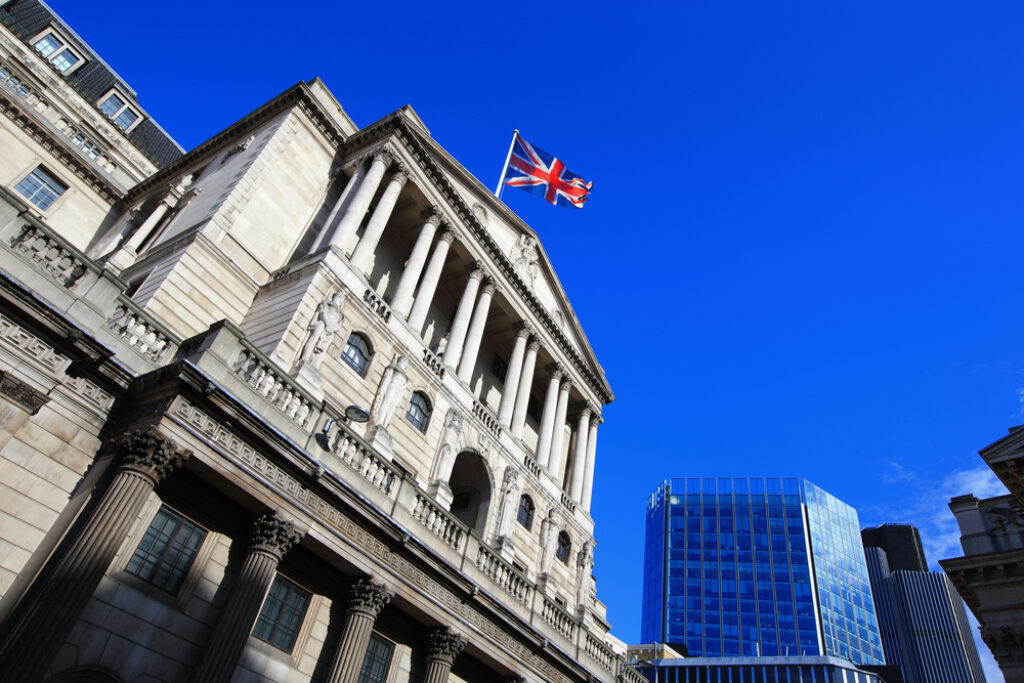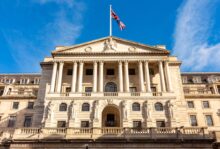The Monetary Policy Committee (MPC) voted by a majority of 7-2 to maintain the base rate at 5.25%. Two members, Swati Dhingra and Dave Ramsden, preferred to cut the base rate by 0.25 percentage points to 5%, They explained that bank rate “needed to become less restrictive now to enable a smooth and gradual transition in the policy stance, and to account for lags in transmission”.
This is now the seventh consecutive time that the base rate has been frozen at 5.25% – last at this rate in March 2008, after earlier expectations suggested a rate cut could be on the cards as early as June.
Market uncertainty
Naturally, the bank has been monitoring wage growth, inflation and GDP figures since the MPC’s last meeting.
While the Consumer Prices Index (CPI) measure of inflation has finally hit the 2% target, the committee said it is expected to rise slightly in the second half of this year (to 2.5%), as declines in energy prices last year fall out of the annual comparison.
However, UK GDP appears to have grown more strongly than expected during the first half of this year, and is expected to grow 0.5% in Q4 2024 as a whole, stronger than the 0.2% rate that had been incorporated in the May report.

Why Life Insurance Still Matters – Even During a Cost-of-Living Crisis
Sponsored by Post Office
But the labour and wage statistics are the sticking point for the bank. It said the “considerable uncertainty” around estimates derived from the Office for National Statistics (ONS) Labour Force Survey “means that it is very difficult to gauge the evolution of labour market activity”.
Minutes of the meeting read: “Based on a broad set of indicators, the MPC judges that the labour market continues to loosen but that it remains relatively tight by historical standards.”
Turning to wages, the committee’s updated forecast for Q2 2024 sees annual growth of just over 5%.
“Recent data suggested a risk that near-term pay growth could moderate by less than had been expected in the May report. The bank’s agents’ contacts had reported that recent pay settlements for 2024 were slightly above the average level recorded in the agents’ annual pay survey presented in the February report,” it noted.
The minutes read: “Monetary policy will need to remain restrictive for sufficiently long to return inflation to the 2% target sustainably in the medium term in line with the MPC’s remit. The committee has judged since last autumn that monetary policy needs to be restrictive for an extended period of time until the risk of inflation becoming embedded above the 2% target dissipates.”
It added that the timing of the general election on 4 July “was not relevant to its decision at this meeting, which would as usual be made on the basis of what was judged necessary to achieve the 2% inflation target sustainably in the medium term”.
‘Decision difficult to accept’
Nicholas Mendes, mortgage technical manager at John Charcol, said: “While today’s decision to hold rates steady may be difficult to accept, recent lender movements suggest we are approaching the end of the era of higher-priced fixed rates. Borrowers, though, will need to remain patient a bit longer before we start to see high street lenders battling amongst themselves at sub-4% fixes.”
Laura Suter, director of personal finance at AJ Bell, said: “Every month that rates stay higher we see more people come off their cheap mortgage deals and onto far more expensive rates. While a small, quarter of a percentage point cut to rates isn’t going to have a dramatic effect on mortgage-holders’ monthly payments, it would be a step in the right direction for people looking down the barrel of paying hundreds more each month for their mortgage.”
Myron Jobson, senior personal finance analyst at Interactive Investor, said: “The decision to hold was widely expected. With a cut in the base rate a question of when, not if, the best savings rates are on borrowed time. The simple message for savers is to get a move on to nab the best deals before they’re gone. Those who can afford to put money away for at least five years or more should consider investing for the potential of long-term inflation-beating returns that far outstrip savings rates.”
Meanwhile, Rob Clarry, investment strategist at wealth management firm Evelyn Partners, said: “Markets appear to have taken the communications from today’s meeting as a sign that rate cuts are close. Interest rate sensitive sectors, such as housebuilding, rallied. While money market traders now assign a 60% chance of an August rate cut, up from 30% yesterday. The next month of data will be crucial.”
Ruth Gregory, deputy chief UK economist at Capital Economics said it expects the Bank’s first rate cut will come in August, due to inflation falling to 1.5% later this year, taking rates to 3% next year rather than to 4% as markets expect.




